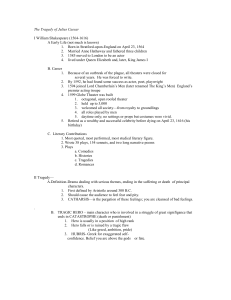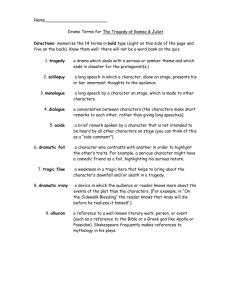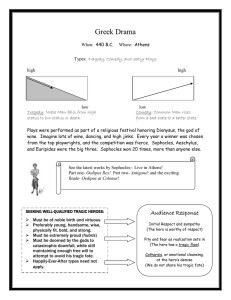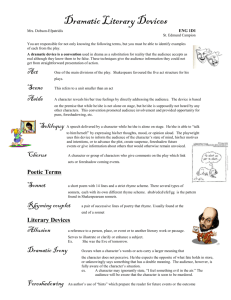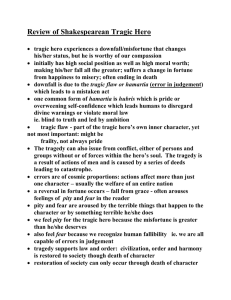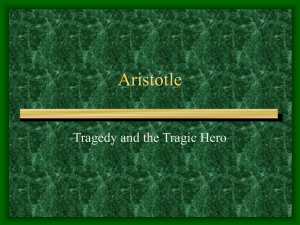Aim: How can we successfully understand the difference between Greek tragedy,
advertisement
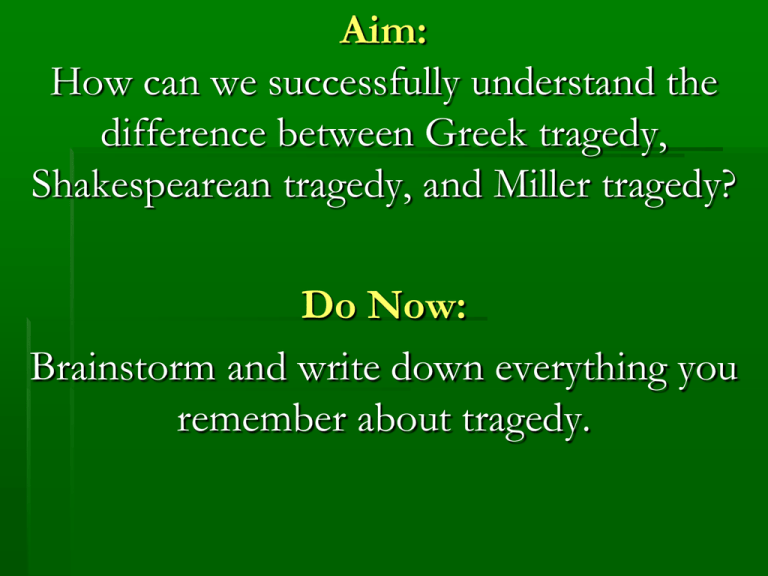
Aim: How can we successfully understand the difference between Greek tragedy, Shakespearean tragedy, and Miller tragedy? Do Now: Brainstorm and write down everything you remember about tragedy. Greek Tragedy Aristotle's definition Around 330 B.C. The most important element of a tragic drama was the unique experience of CATHARSIS, the arousing of the specific emotions of pity and fear so as to dispel or purge them in the spectator. This is tragedy defined by its emotional effect on the audience. Ideal Plot The story takes place in 24 hours. This produces a strong emotional response. Tragic Hero’s Characteristics The hero must be of high status. The hero must basically be a good person. Has a tragic flaw that contributes to downfall. - Hubris (pride) Recognizes his/her mistakes. Reverses position. Punished but not necessarily with death. Additional Information on Greek Tragedy There is an all male cast. There are a minimal number of actors. The actors wear masks. The music is integral. The chorus is the voice of the people, moral center. Shakespearean Tragedy Shakespeare includes the unique experience of CATHARSIS, the arousing of the specific emotions of pity and fear so as to dispel or purge them in the spectator. Ideal Plot Shakespearean plays do not all occur in a day or two. Many plays give the assumption that they do. Tragic Hero Characteristics Hero must be of high rank. Exhibits extraordinary talents. The hero’s greatest strength when taken to the extreme contributes to his downfall. Hero may or may not recognize his/her flaw. The tragic hero always dies. Arthur Miller Tragedy Characteristics The common man has relevance. The common man has inherent unwillingness to remain passive in the face of what he conceives to be a challenge to his dignity, his image of his rightful status. The common man never recognizes fault. Audience is in the presence of a character who is ready to lay down his life to secure one thing- his sense of personal dignity.
